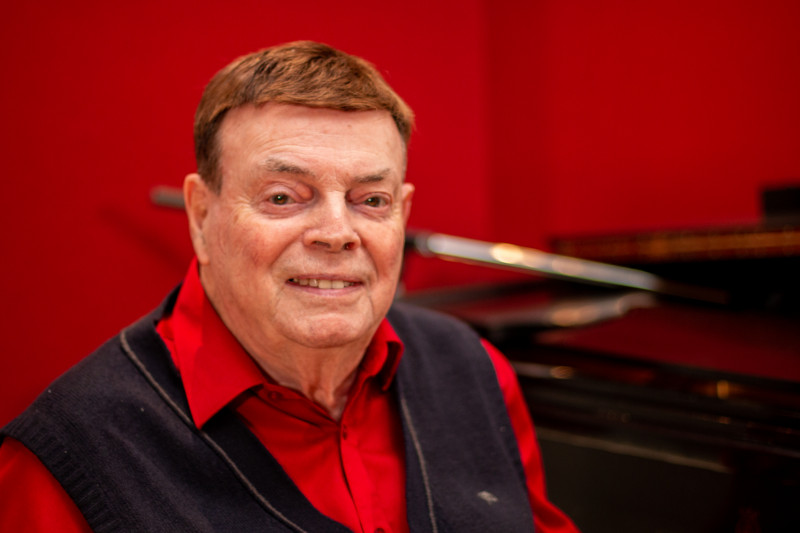Mr. Douglas T. MacPhee
 Douglas T. MacPhee, a resident of New Waterford, Nova Scotia, is renowned for his musical accomplishments and is a true pillar of traditional Scottish music. Celebrated both as an accompanist and as a soloist, he is widely known for his unique ability to emulate the sound of the Cape Breton fiddle on the piano. Mr. MacPhee has directly contributed to the recognition and growth of the popularity of Scottish music on the Island and beyond.
Douglas T. MacPhee, a resident of New Waterford, Nova Scotia, is renowned for his musical accomplishments and is a true pillar of traditional Scottish music. Celebrated both as an accompanist and as a soloist, he is widely known for his unique ability to emulate the sound of the Cape Breton fiddle on the piano. Mr. MacPhee has directly contributed to the recognition and growth of the popularity of Scottish music on the Island and beyond.
Over the course of his admirable career, Doug MacPhee has released six solo recordings. He recorded accompaniment on over 60 albums with such Cape Breton fiddle luminaries as Buddy MacMaster, Donald MacLellan, Johnny Wilmot, Carl MacKenzie, John Campbell and Joe Cormier to name a few. Throughout Canada and internationally, he has toured and has taken part in countless interviews for radio, television and film documentaries lending his knowledge and skill regarding Cape Breton music.
Mr. MacPhee has played a vital role in the foundation and growth of such institutions dedicated to music and culture as the Gaelic College in St. Anne’s, the Celtic Colours International Music Festival and the Beaton Institute at Cape Breton University. With his encyclopedic knowledge of music, he has initiated landmark archival initiatives at the Beaton Institute, thus preserving for centuries’ worth of this unique genre of Canadian music that otherwise would have been lost to history.
Mr. MacPhee was inducted into the Order of Canada for his contribution to Cape Breton traditional culture in 2008, honouring his musical accomplishments, as well as his archival work.
Mr. MacPhee has lived in Toronto, Boston and even California, but the call of returning home was strong, and he is always happiest playing music and living home in New Waterford, Cape Breton. Over the years, Mr. MacPhee has inspired many Cape Bretoners to be proud of their musical heritage. He has dedicated and invested his time and has encouraged future musicians in the local area.
As a true icon of the Cape Breton Scottish music and culture, he has served as an unofficial but significant ambassador of Cape Breton Island. His legacy will continue with the future generation of musicians and conservers of culture.